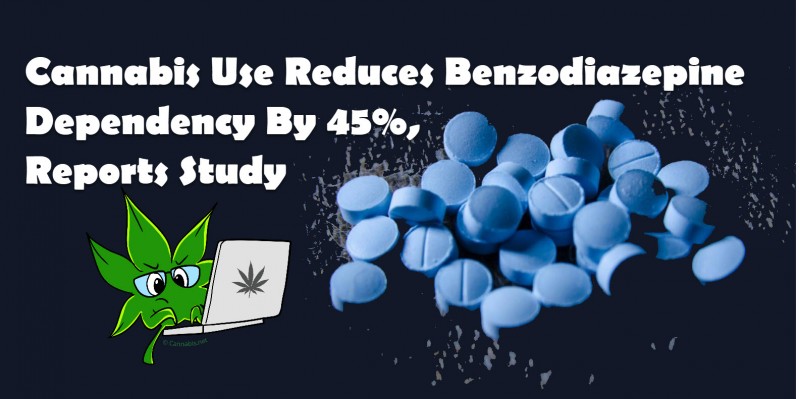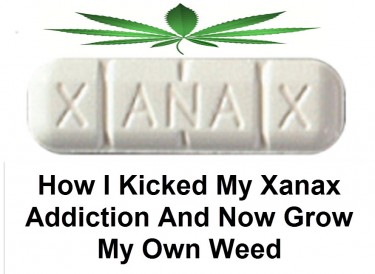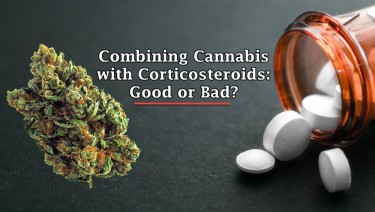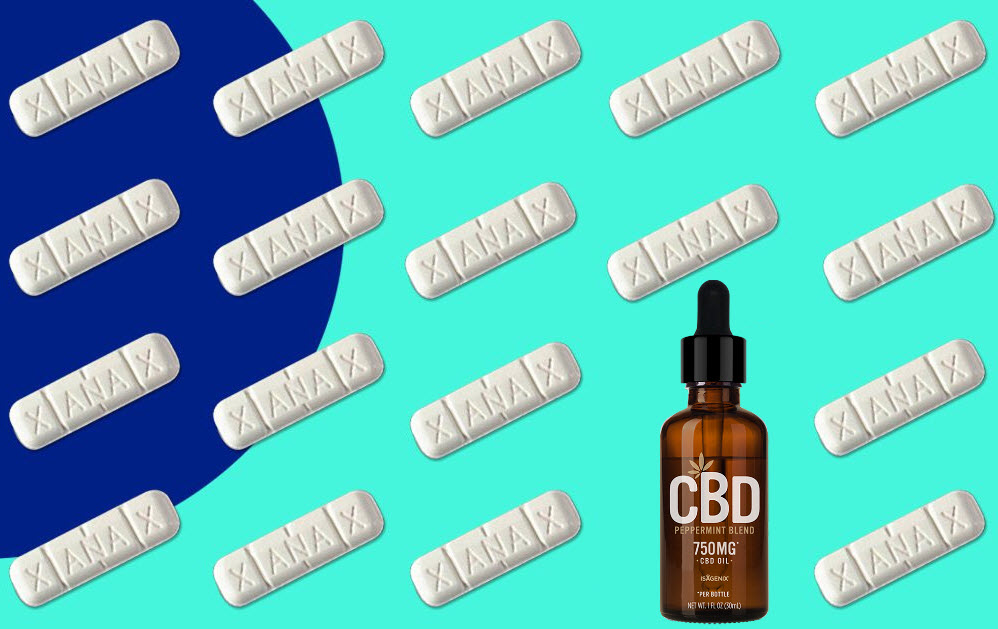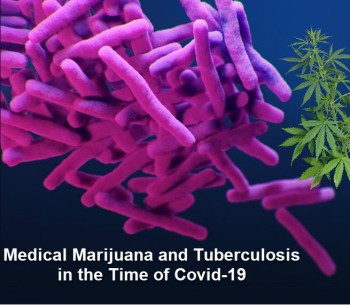Cannabis Use Reduces Benzodiazepine Dependency By 45%, Reports Study
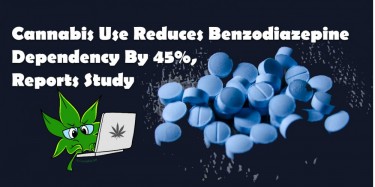
A recent first-of-its-kind study published in “Cannabis and Cannabinoid Research” conducted by Aleafia Health Inc. revealed promising results in the use of cannabis for reducing benzodiazepine consumption.
The retrospective analysis and peer-reviewed study, called Reduction of Benzodiazepine Use in Patients Prescribed Medical Cannabis revealed that 45.2% of patients who were regular consumers of benzodiazepines stopped taking these harmful drugs within just 6 months of starting a cannabis habit. Aside from reducing their benzo intake, they also reported a decrease in the discomfort caused by their conditions.
The study was led by a team of doctors and pharmacologists, including Dr. Nico Moolman, Clinical Assistant Professor from the University of Saskatchewan and Dalhousie University Head of Otolaryngology-Head and Neck Surgery Department Dr. Mark Taylor. They assessed 146 patients who participated in the program through the Canabo Medical Clinics of Aleafia. This is promising news as it helps combat the addiction to harmful opioids and benzodiazepines.
According to Dr. Michael Verbora, Chief Medical Officer of Aleafia, the data compiled by the study will help them in developing new treatment methods and products. “Due to regulatory hurdles and lingering stigma, there remains a shortage of medical cannabis research. At Aleafia, we will continue to leverage our IP and leading cannabis data to further advance patient care through advanced treatment methods and specialized product development,” Verbora commented. “This study’s results will not be surprising to many patients who have transitioned from prescription pain killers and sedatives with the help of physician-led medical cannabis therapy. I thank the study authors for this significant contribution to evidence-based medicine,” he said.
However, lead author Chad Purcell, warned that patients shouldn’t use the data as a means of completely substituting cannabis for conventional medications. “The study results are encouraging, and this work is concurrent with growing public interest in a rapidly developing Canadian cannabis market,” Purcell said. “We are advising the public to observe caution. The results do not suggest that cannabis should be used as an alternative to conventional therapies. Our purpose is inspiring others to advance current cannabis understanding as we collect stronger efficacy and safety data that will lead to responsible policy and recommended practices for use.”
Dangers of Benzodiazepines
The study’s findings are important: opioids and painkillers aren’t the only culprits contributing to deaths caused by an addiction, misuse, or abuse of pharmaceutical drugs. From 1999 to 2015, there was an alarming increase in benzodiazepine-related deaths from 1,135 to 8,791.
Xanax and Valium are the most common benzos; these are usually prescribed for treating insomnia, anxiety, and seizures. However, these conditions are three of the most common ailments that people successfully use cannabis for, without risk of abuse or “These are highly addictive and potentially lethal drugs, and many people don’t know that,” says Dr. Anna Lembke of the Stanford University School of Medicine. “Sadly, most physicians are also unaware of this and blithely prescribe them without educating their patients about the risk of addiction.”
It’s also concerning that there isn’t enough dialogue about benzodiazepine-overdoses, at least not as much as there is surrounding opioid overdoses. Even if benzodiazepines don’t possess the same risk for misuse compared to opioids, when you mix benzodiazepines with other medications and even alcohol, the risk increases greatly. Opioids, as well as benzodiazepines and alcohol, all work in depressing the central nervous system, leading to slowed heart rate and breathing. Combining benzodiazepines with analgesics depresses the central nervous system exponentially, which to your body feels like you’ve taken up to three or four times as much of either drug. When this happens, the body “forgets” how to work properly and in some cases it can cause your heart to stop completely. The damage to your system as a result is so severe, particularly in the brain because of oxygen deprivation. This is why medical assistance doesn’t always help once it’s already happened.
Even if you don’t abuse the drug, benzodiazepines can impart immediate side effects including irregular heartbeats, vertigo, depression, confusion, depression, and nausea.
Purcell’s warning must be heeded; terminating benzodiazepine treatment suddenly can also be dangerous. Instead, patients who are taking benzos should seek the guidance of a physician in gradually reducing their intake for safety.
OTHER STORIES YOU MAY ENJOY...
CANNABIS FOR BENZODIAZEPINES, CLICK HERE.
OR..
XANAX AND CANNABIS GROWING, READ THIS, CLICK HERE.
OR..
CANNABIS AND STERIODS, WHAT YOU NEED TO KNOW?
